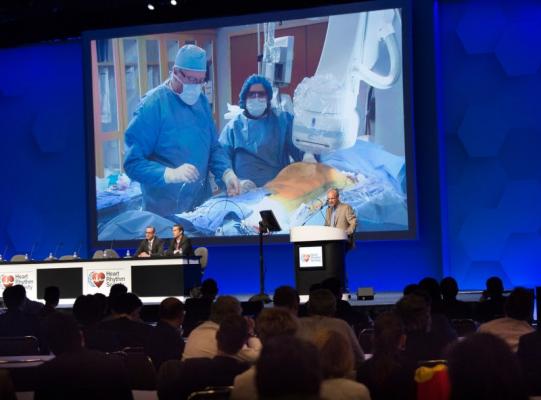
July 10, 2019 — The U.S. Food and Drug Administration (FDA) issued the final guidance “Live Case Presentations During Investigational Device Exemption (IDE) Clinical Trials.”
A live case presentation is a live or pre-recorded broadcast of a surgical procedure or procedure done through the skin (percutaneous). This presentation is typically narrated by the person performing the procedure or a commentator other than the person performing the procedure. In some cases, expert panel or audience interaction may occur. These presentations are typically broadcast at scientific meetings to increase awareness of the clinical investigation and recruit prospective investigators and study subjects.
This final guidance provides:
-
Measures recommended to ensure adequate human subject protection, follow-up and reporting for live case presentations;
-
Factors for institutional review boards (IRBs), industry, clinical investigators and FDA staff to consider when evaluating the appropriateness of a live case presentation within a clinical investigation; and
-
Important information about a live case presentation that should be submitted to the FDA when requesting approval to conduct a live case presentation within a clinical investigation under an investigational device exemption (IDE) application.
The FDA said video recordings or broadcasts outside the scope of this guidance include devices or procedures that automatically capture video during use (e.g., laparoscopic and thorascopic devices), telemedicine, and recordings that are routinely captured and broadcast as part of an institution’s standard policies. Investigators should follow the institution’s policies regarding the ability to share these kinds of video recordings in a manner consistent with applicable laws and regulations.
The agency noted it expects that very few investigations under an IDE will include live case presentations. However, it said that by increasing awareness of the study for healthcare professionals and eligible subjects, live case presentations may lead to new therapies being made available sooner. Because live case presentations are often intended to recruit investigators and subjects, it is generally not appropriate to request a live case presentation for a clinical investigation nearing completion, according to the FDA, though exceptions may exist.
The agency noted that not all clinical investigations are appropriate for live case presentations. For example, certain high-risk procedures that may adversely impact the subject, or certain investigations involving children, may not be suitable for live case presentations. When reviewing an IDE application, FDA intends to evaluate whether the requested live case presentation raises the risk profile of participation for subjects, such that conducting the live case presentation is not justified. A live case presentation may not be appropriate for novel devices for which the risk profile is unknown or only limited information is available. On the other hand, an acceptable live case presentation could include a high-risk procedure in which the risks are well-understood, risk mitigations are in place (e.g., the case is being performed by a team of operators with high levels of expertise at a site with an excellent record of both performing the procedure and performing live case presentations), subjects are selected with appropriate clinical and anatomic characteristics (e.g., a subject that does not have complex anatomy or is not at the highest risk for injury should a complication occur), and the informed consent process is conducted in accordance with 21 CFR part 50.
Investigations involving a significant risk device, including those investigations involving live case presentations, require prior approval by FDA and an IRB (21 CFR 812.20(a)(2) and 21 CFR 812.62). Investigations involving a non-significant risk device, including those investigations involving live case presentations, must be approved by an IRB, but non-significant risk device investigations generally do not require the submission of an IDE application to FDA (21 CFR 812.2(b)(1)(ii)).
Read the full guidance document here.
For more information: www.fda.gov


 January 05, 2026
January 05, 2026 









